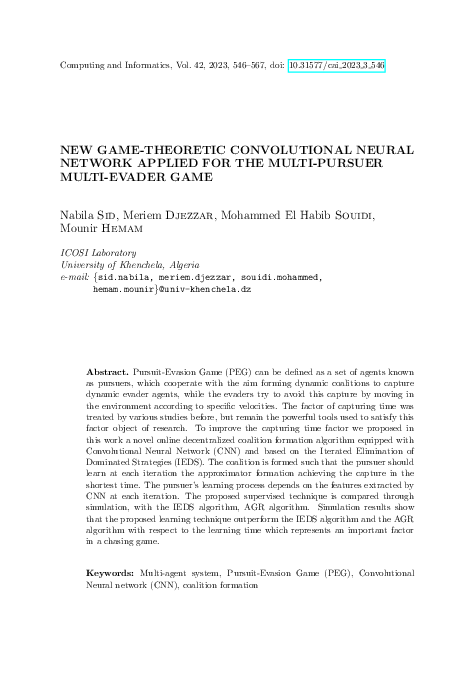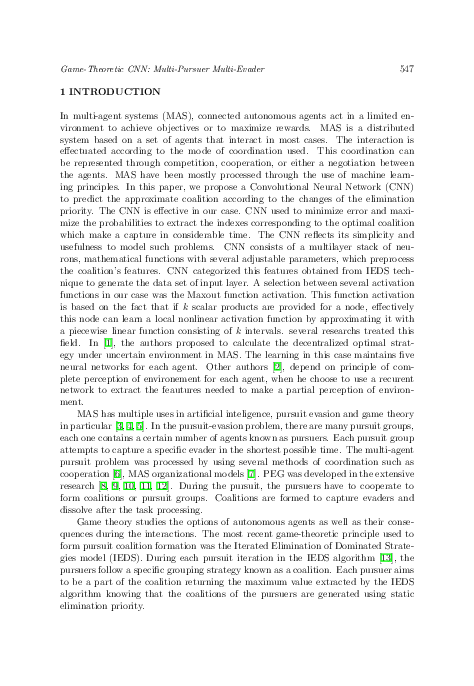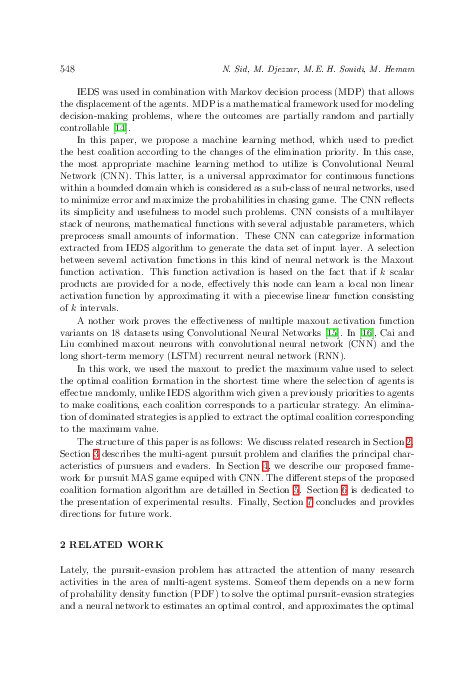New Game-Theoretic Convolutional Neural Network Applied for the Multi-Pursuer Multi-Evader Game
keywords: Multi-agent system, Pursuit-Evasion Game (PEG), Convolutional Neural network (CNN), coalition formation
Pursuit-Evasion Game (PEG) can be defined as a set of agents known as pursuers, which cooperate with the aim forming dynamic coalitions to capture dynamic evader agents, while the evaders try to avoid this capture by moving in the environment according to specific velocities. The factor of capturing time was treated by various studies before, but remain the powerful tools used to satisfy this factor object of research. To improve the capturing time factor we proposed in this work a novel online decentralized coalition formation algorithm equipped with Convolutional Neural Network (CNN) and based on the Iterated Elimination of Dominated Strategies (IEDS). The coalition is formed such that the pursuer should learn at each iteration the approximator formation achieving the capture in the shortest time. The pursuer's learning process depends on the features extracted by CNN at each iteration. The proposed supervised technique is compared through simulation, with the IEDS algorithm, AGR algorithm. Simulation results show that the proposed learning technique outperform the IEDS algorithm and the AGR algorithm with respect to the learning time which represents an important factor in a chasing game.
reference: Vol. 42, 2023, No. 3, pp. 546–567


